February 10th, 2019 — 4:23pm
On Gold Mountain: A Hundred-Year Odyssey of My Chinese-American Family by Lisa See.
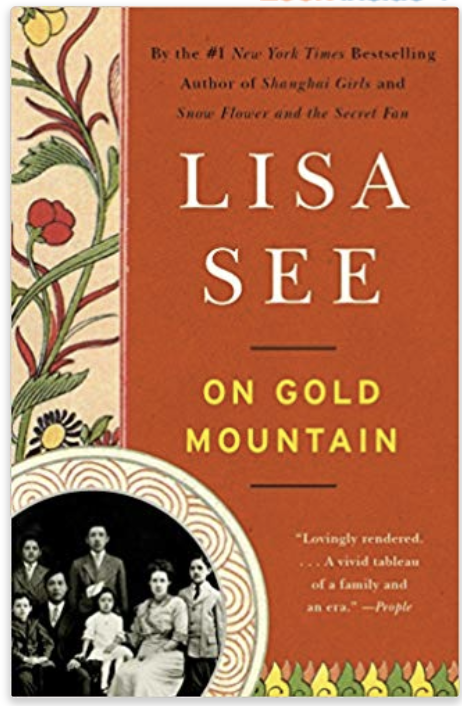 If you do not know it, “Gold Mountain” is California and the story begins as the author’s great-great-grandfather Fong See arrives on the West Coast of the United States where he works making herbal remedies for other Chinese men working to build the railroad.. The book traces his intermarriage to Ticie and how he becomes involved in Chinese antiques and furniture. The arc of the story includes three generations, many of whom stayed in the family business, mostly in the Los Angeles area. We followed the progenitor and other family members as they often visit China and give money to family back home, and bring old Chinese antiques and furniture back to the United States. We come to appreciate the outrageous discrimination against the Chinese including American laws that directly targeted this group. We also learn about Chinese customs including the practice where men often had multiple wives which might include concubines and prostitutes.
If you do not know it, “Gold Mountain” is California and the story begins as the author’s great-great-grandfather Fong See arrives on the West Coast of the United States where he works making herbal remedies for other Chinese men working to build the railroad.. The book traces his intermarriage to Ticie and how he becomes involved in Chinese antiques and furniture. The arc of the story includes three generations, many of whom stayed in the family business, mostly in the Los Angeles area. We followed the progenitor and other family members as they often visit China and give money to family back home, and bring old Chinese antiques and furniture back to the United States. We come to appreciate the outrageous discrimination against the Chinese including American laws that directly targeted this group. We also learn about Chinese customs including the practice where men often had multiple wives which might include concubines and prostitutes.
This is an important book about the history and roots of Chinese-Americans. It serves a purpose of also being a family record of the ancestors of the author as well as many Americans who have roots in the immigration from China. I feel educated and more enlightened having read this book. I can understand why the author, who has written many best-selling novels, would have chosen to share her family history in this book.
Having said all of the above, I found the book quite tedious to read. The author should have provided a clear usable family tree diagram to follow the different characters and the various relationships.( There was a small family tree at the beginning of the book , which was very difficult to read on the I-Pad,) To the non-Chinese reader, the names were unfamiliar and frequently sounded the same. In addition, sometimes it appears that the author used two different names for the same character.
The author’s previous success as a novelist, I am sure led many people to explore this book. In my case, I only stayed with it because it was a selection of my book club. In the end, I am enlightened about Americans with Chinese heritage, but this is not a book that I would recommend for enjoyable reading.
Please consider leaving your comments below
If you wish to purchase this book on Amazon, please click here
Comment » | AM - Autobiography or Memoir, HI - History, P - Political
October 20th, 2010 — 2:10am
Buy now on Amazon: Postcards from Tomorrow Square
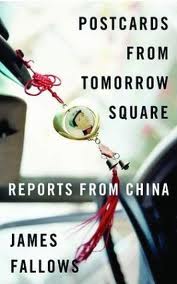 This book consists of 12 chapters which were written between 2006-and 2008 when Fallows and his wife were living first in Shanghai and then Beijing and were traveling through many other part of China. I read it just prior to our trip to China. Fallows was writing for the Atlantic Monthly and is considered by many people as the chronicler of life in contemporary China – at least to many American readers. Although he does not speak Chinese he works as a good reporter who has lots of friends and contacts and does seem to get close to the people. He also arranges interviews with interesting, some important and many typical people in various situations and locations. It becomes clear that China does not speak with one voice nor can it be easily characterized. The difference between life in the cities and life in the rural poverty stricken western part of the country is well described. The book clarified as best as one might, the complicated relationship between the Communist government on a national level and the local government officials as they impact life in this vast country. And vast it is . It is the size of the country and the 1.5 billion people that also makes this land and it’s people such an important force in the world. The freedom or lack of it to communicate in public or on the Internet, farming in the countryside, the growth of factories and manufacturing, how America out sources such to China, the failure and minor successes of trying to become green and deal with the environment, preparing for the 200 Olympics are some of the issues which this book explored. The author is very conscious of how Americans are trying to figure out China and whether to be fearful or embrace this country as we move into the 21st century. This book doesn’t fully answer the question but it is a good primer on this subject.
This book consists of 12 chapters which were written between 2006-and 2008 when Fallows and his wife were living first in Shanghai and then Beijing and were traveling through many other part of China. I read it just prior to our trip to China. Fallows was writing for the Atlantic Monthly and is considered by many people as the chronicler of life in contemporary China – at least to many American readers. Although he does not speak Chinese he works as a good reporter who has lots of friends and contacts and does seem to get close to the people. He also arranges interviews with interesting, some important and many typical people in various situations and locations. It becomes clear that China does not speak with one voice nor can it be easily characterized. The difference between life in the cities and life in the rural poverty stricken western part of the country is well described. The book clarified as best as one might, the complicated relationship between the Communist government on a national level and the local government officials as they impact life in this vast country. And vast it is . It is the size of the country and the 1.5 billion people that also makes this land and it’s people such an important force in the world. The freedom or lack of it to communicate in public or on the Internet, farming in the countryside, the growth of factories and manufacturing, how America out sources such to China, the failure and minor successes of trying to become green and deal with the environment, preparing for the 200 Olympics are some of the issues which this book explored. The author is very conscious of how Americans are trying to figure out China and whether to be fearful or embrace this country as we move into the 21st century. This book doesn’t fully answer the question but it is a good primer on this subject.
Comment » | H - Humor, P - Political
October 10th, 2010 — 2:07am
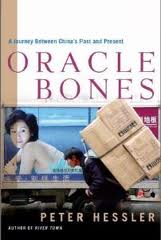 A Journey Between China’s Past and Present. Oracle Bones
A Journey Between China’s Past and Present. Oracle Bones
491 pp. HarperCollins Publishers. $26.95. (2006)
Peter Hessler is an American who joined the Peace Corps and was assigned to China in 1996. After his rotation there is decided to live in China for awhile and took a position teaching English. He has mastered the Chinese language himself and was able to speak quite well. He developed good relationships with his students and he continued to communicate with them over the next several years, often visiting them as they made their way exploring various jobs and careers. Hessler then began to travel around China himself working as a free lance journalist and eventually taking a position as the Beijing correspondent of New Yorker magazine . This book covers a time period of of 1999 to 2002. I read this book in 2010 just prior to visiting China. I get the impression from this book and others that I have recently read , that China is in such rapid transition that some of the depictions even in this book must be viewed as historical .
The title of this book comes from the fact that the earliest Chinese writings were on the shells and bones of ancient tortoises. Hesler does focus on archeology for much of the book as the story of China does seem to be that of a vast country which has been searching to understand it’s complicated history and to understand where it has fit Into the scheme of the world in the past and what will the role of China be in the future. The migration pattern within the country in the past as well as in the present as illustrated by the lives of his young students with whom he tries to keep track. Their stories and the stories of their families are ones of seeking opportunity escape from poverty It should be clear to people who understand China and it certainly emerges from this book, that there are quite diverse ethnic groups in China. Hessler’s friendship with Polat a Uighur from what was East Turkestan is one such illustration. Polat’s success as a currency trader especially with the Russians is very interesting as is his decision to do a little deception ( as everyone seems to do ) and arrange to move to the United States.
American readers such as this reviewer have been interested in trying to understand the Chinese political system which on one hand encourages private business but is an repressive dictatorial regime at least some of the time. Some of the times are illustrated what happened in Tiammenan Square and what happens periodically when various dissident groups try to demonstrate or speak out against the government. One case in point is the life and death of Chen Mangjia, apparently a brilliant archeologist who end up killing himself. Hessler becomes very interested in understanding this man and what happened to him. While he never quite figures everything out, his quest to understand Mangjia’s life leads to him to meet and speak with many people . His writing about this man is revealing about China. For example Mangjia apparently thought that China should stick with it’s traditional writing characters at a time that the government was considering a change to a more western style of writing ( which was never instituted ). Nevertheless, Mangjia was labeled a “rightest” by the government and was actually sent away for several years to be “educated“ He may not have been the same again and apparently committed suicide.
The book ends prior to the 2008 Olympics which ended up being held in Beijing. The efforts of the country to get the Olympics to China were monumental as was the preparation for it. This book touches on the journey that China underwent and the potential impact expected form having the games.
I wish that I had thought to have a map of China handy as I read this book. Unless you are fairly familiar with the geography of this gigantic country and know where the various cities and regions are located, it can be a little confusing . Howeve this should be easy to remedy with a good map nearby.
Peter Hellser has made it very easy to share the several years of his life which he devoted to exploring and trying to understand China..The process of doing this allows the reader to begin to appreciate this vast dynamic land.
Comment » | HI - History, P - Political
July 1st, 2010 — 2:28am
Reluctantly, I began this novel, believing I wouldn’t particularly be interested in these women’s lives or the historical time in which it was set. I was immediately sucked into the story line and the lives of these two “beautiful” girls living in what they thought was an upper-class life style. The place was Shanghai, China and the time was 1937. Knowing that the world was about to change and that the characters would probably be impacted and swept up by these impending changes, riveted my attention to these people, their life style and culture. Just as we begin to know them and feel comfortable with the characters there is a crescendo of events, which we come to appreciative through the eyes of these girls. Arranged marriages, invasion by the Japanese, dissolution of family, fleeing home and country, rape, murder and the desire to survive captivates the reader as a great movie might also do (and this is sure to be made into one).
As engrossing and enlightening that the first half of the book may have been, it is the second half, which I found the most stimulating and thought provoking. The Shanghai girls come to the United States through Angel Island (the Ellis Island of the West) and struggle with their new family to survive in the ghettoized Chinatown in Los Angeles. The discrimination, which they and their family experience, and the treatment as second-class citizens is eye opening. The history books, which I studied, somehow never quite conveyed this story. I knew the U.S. interred Japanese after Pearl Harbor but I never appreciated how harshly we treated the Chinese who hated the Japanese as much as Americans did. Similarly, whatever you have understood about how badly McCarthyism may have unfairly treated suspected “Communist sympathizers”, it was nothing compared to how Chinese in America were treated during the time that the Communists had just taken over China and were perceived as our enemy.
As I got into this book it was clear to me that the story could have been “ripped from today’s headlines”. You easily could substitute “ Latino” for “Chinese” and be describing the plight of “undocumented” Latinos who are being discriminated in our country today and even persecuted under the new Arizona legislation. The family members in the book who were trying to eek out a living could be my gardener, the car washer and so many Latinos that we encounter everyday in Los Angeles.
In between periods of reading the book, I found myself thinking about what I knew about the refugees from Poland, Germany and Russia who were my family. I know best the story of my wife’s mother and grandparents who after being bourgeoisie in Russia were confronted and severely maltreated by the Cossacks and then by the Communists causing them to flee their homeland. By hook or by crook they made it to the United States. Initially they lived together in less than ideal accommodations and faced discrimination and hardships. It is easy to forget how so many of us are living the dreams of our ancestor immigrants. We may never fully know the hardships which they faced but are reminded of what they may have been when we read a book such as this one.
Lisa See, the author of Shanghai Girls has indicated in some notes at the conclusion of the book that she has researched the history and based much of the characters and plots on interviews and oral histories, which clearly gives this book an authentic ring. I thank her for work and also our book club for choosing his book for me to experience.
Comment » | FH - Fiction Historical
 If you do not know it, “Gold Mountain” is California and the story begins as the author’s great-great-grandfather Fong See arrives on the West Coast of the United States where he works making herbal remedies for other Chinese men working to build the railroad.. The book traces his intermarriage to Ticie and how he becomes involved in Chinese antiques and furniture. The arc of the story includes three generations, many of whom stayed in the family business, mostly in the Los Angeles area. We followed the progenitor and other family members as they often visit China and give money to family back home, and bring old Chinese antiques and furniture back to the United States. We come to appreciate the outrageous discrimination against the Chinese including American laws that directly targeted this group. We also learn about Chinese customs including the practice where men often had multiple wives which might include concubines and prostitutes.
If you do not know it, “Gold Mountain” is California and the story begins as the author’s great-great-grandfather Fong See arrives on the West Coast of the United States where he works making herbal remedies for other Chinese men working to build the railroad.. The book traces his intermarriage to Ticie and how he becomes involved in Chinese antiques and furniture. The arc of the story includes three generations, many of whom stayed in the family business, mostly in the Los Angeles area. We followed the progenitor and other family members as they often visit China and give money to family back home, and bring old Chinese antiques and furniture back to the United States. We come to appreciate the outrageous discrimination against the Chinese including American laws that directly targeted this group. We also learn about Chinese customs including the practice where men often had multiple wives which might include concubines and prostitutes.
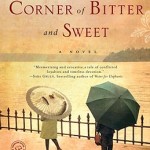
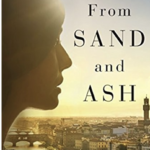

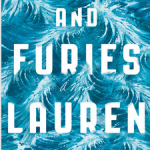
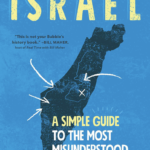
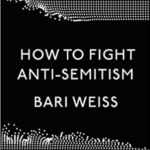

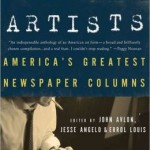
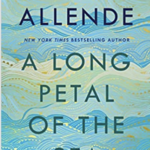
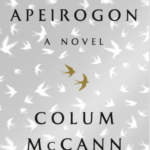



 This book consists of 12 chapters which were written between 2006-and 2008 when Fallows and his wife were living first in Shanghai and then Beijing and were traveling through many other part of China. I read it just prior to our trip to China. Fallows was writing for the Atlantic Monthly and is considered by many people as the chronicler of life in contemporary China – at least to many American readers. Although he does not speak Chinese he works as a good reporter who has lots of friends and contacts and does seem to get close to the people. He also arranges interviews with interesting, some important and many typical people in various situations and locations. It becomes clear that China does not speak with one voice nor can it be easily characterized. The difference between life in the cities and life in the rural poverty stricken western part of the country is well described. The book clarified as best as one might, the complicated relationship between the Communist government on a national level and the local government officials as they impact life in this vast country. And vast it is . It is the size of the country and the 1.5 billion people that also makes this land and it’s people such an important force in the world. The freedom or lack of it to communicate in public or on the Internet, farming in the countryside, the growth of factories and manufacturing, how America out sources such to China, the failure and minor successes of trying to become green and deal with the environment, preparing for the 200 Olympics are some of the issues which this book explored. The author is very conscious of how Americans are trying to figure out China and whether to be fearful or embrace this country as we move into the 21st century. This book doesn’t fully answer the question but it is a good primer on this subject.
This book consists of 12 chapters which were written between 2006-and 2008 when Fallows and his wife were living first in Shanghai and then Beijing and were traveling through many other part of China. I read it just prior to our trip to China. Fallows was writing for the Atlantic Monthly and is considered by many people as the chronicler of life in contemporary China – at least to many American readers. Although he does not speak Chinese he works as a good reporter who has lots of friends and contacts and does seem to get close to the people. He also arranges interviews with interesting, some important and many typical people in various situations and locations. It becomes clear that China does not speak with one voice nor can it be easily characterized. The difference between life in the cities and life in the rural poverty stricken western part of the country is well described. The book clarified as best as one might, the complicated relationship between the Communist government on a national level and the local government officials as they impact life in this vast country. And vast it is . It is the size of the country and the 1.5 billion people that also makes this land and it’s people such an important force in the world. The freedom or lack of it to communicate in public or on the Internet, farming in the countryside, the growth of factories and manufacturing, how America out sources such to China, the failure and minor successes of trying to become green and deal with the environment, preparing for the 200 Olympics are some of the issues which this book explored. The author is very conscious of how Americans are trying to figure out China and whether to be fearful or embrace this country as we move into the 21st century. This book doesn’t fully answer the question but it is a good primer on this subject. A Journey Between China’s Past and Present.
A Journey Between China’s Past and Present.